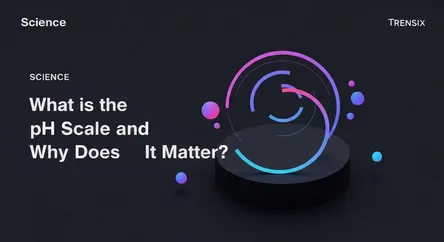Science
What is the pH Scale and Why Does It Matter?
What is it?
The pH scale is a measure of how acidic or basic a water-based solution is. The scale typically ranges from 0 to 14. A pH of 7 is considered neutral, like pure water. Solutions with a pH less than 7 are acidic, while those with a pH greater than 7 are basic or alkaline. The scale is logarithmic, which means a change of one pH unit represents a tenfold change in acidity. For instance, a solution with a pH of 3 is ten times more acidic than a solution with a pH of 4. The measurement is based on the concentration of hydrogen ions in the solution.
Why is it trending?
The concept of pH is a fundamental principle in science that remains highly relevant in modern discussions. It is central to environmental issues like ocean acidification and acid rain, which are of increasing concern. In the health and wellness community, there is ongoing interest in how diet affects the body's pH balance, even though the body naturally maintains a stable blood pH. Furthermore, its practical application in critical industries such as agriculture (for soil health), water treatment, food safety, and cosmetics ensures its continued importance and public interest.
How does it affect people?
The pH scale has a significant impact on daily life. The human body must maintain a blood pH of around 7.4 to function correctly; any significant deviation can cause severe health problems. It is crucial for ensuring the safety and quality of drinking water and food. In agriculture, the pH of the soil affects crop growth and nutrient availability, which impacts the food supply. Many consumer products, such as soaps, shampoos, and cleaning agents, are formulated to a specific pH to ensure they are safe and effective for human use.
